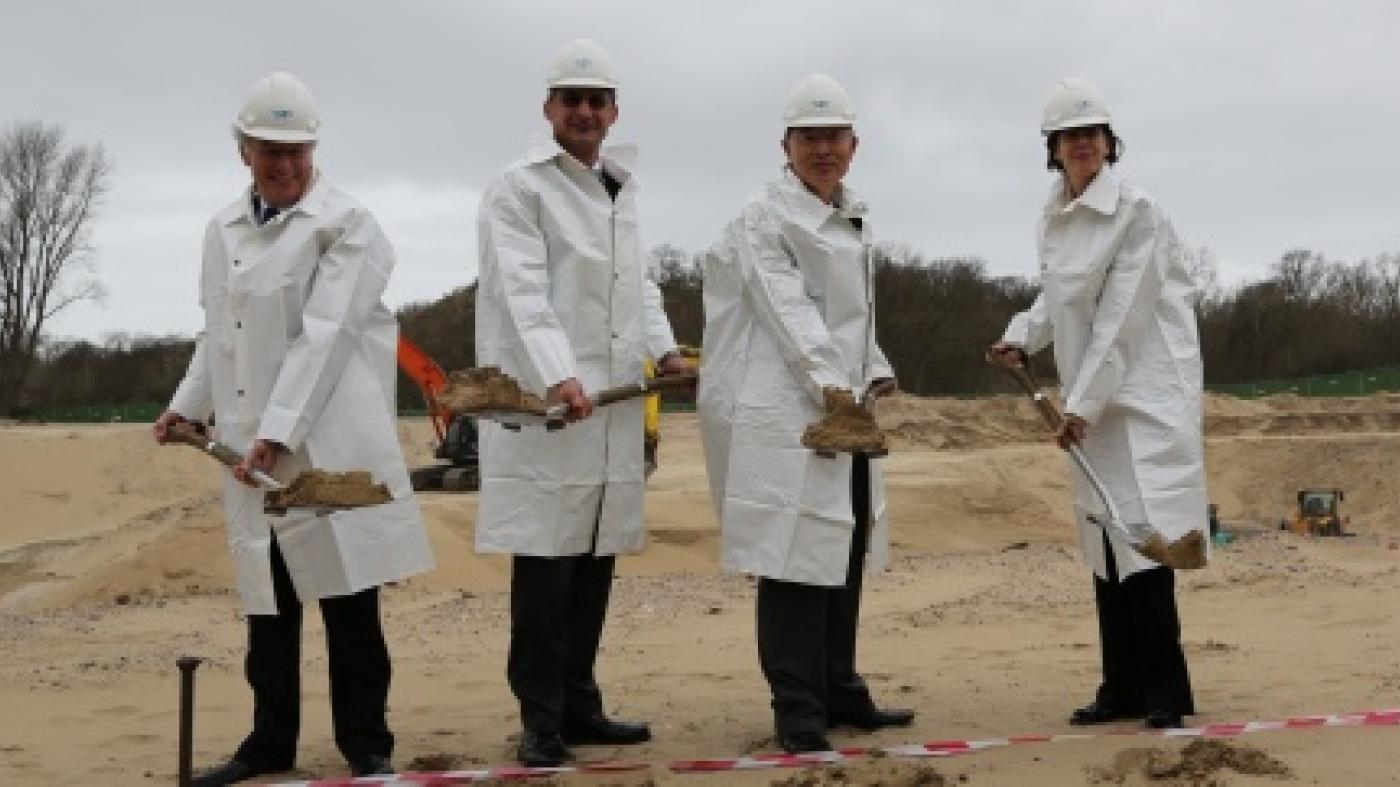
On Tuesday, 16 April 2013, the International Criminal Court (ICC) held a groundbreaking ceremony to mark the beginning of construction work on the Court’s Permanent Premises in The Hague (The Netherlands). Construction will be completed towards the end of 2015, when the premises will be ready for use.
The ceremony was organised by the project’s Oversight Committee, on behalf of the Assembly of States Parties (ASP). The groundbreaking was conducted by four official guests: the ASP Vice-President, Ambassador Markus Börlin; the ICC President, Judge Sang-Hyun Song; the Mayor of The Hague, Mr Jozias Johannes van Aartsen; and the Secretary-General of the Dutch Ministry of Foreign Affairs, Mrs Renée Jones-Bos.
Introducing the ceremony, the Chair of the Oversight Committee, Mr. Roberto Bellelli, stated that “this is a point of no return on the path of international criminal justice […] the transition […] to a permanent architecture in international relations [whose] roots […] are being excavated in a visible and permanent structure in the ground of The Hague, in a mutually reinforcing relationship of Peace and Justice between this City and the ICC.”
“In just over two years, the ICC will be housed in an iconic group of buildings that will leave visitors with a strong image of the Court: that of an august institution established to combat impunity by imparting justice in accordance with the rule of law”, said ASP Vice-President Ambassador Börlin.
“An institution of global significance deserves a world class premises. That, I am pleased to say, is what we are building here”, stated ICC President Song.
“This summer we will be celebrating the centenary of the Peace Palace, the symbol of The Hague as the International City of Peace and Justice. Almost a century after the Peace Palace opened its doors, work begins on building what has been described as ‘the Peace Palace of the 21st century’: the International Criminal Court”, noted the Mayor of The Hague, Mr van Aartsen.
“The new ICC-building will become a landmark in the Netherlands and we are proud to have it on our territory. Our commitment with the ICC is consistent with a vocation to promote international law that is deeply rooted in Dutch history and which is reflected in the Dutch Constitution, said the Secretary-General of the Ministry of Foreign Affairs, Mrs. Jones-Bos.
About the Permanent Premises
The new Court will be situated between the natural rolling dune landscape and the edge of The Hague on the site where the Alexanderkazerne (Alexander Barracks) were located on the van Alkemadelaan/Oude Waalsdorperweg.
The chosen site is an ideal location, since it is situated close to the ICC Detention Centre and to major roads. The site is part of the International Zone of The Hague which also contains the Peace Palace, Europol, ICTY, OPCW and The Hague World Forum.
The host state (The Netherlands) made the site available free of charge. The project is funded by the 122 States Parties that have ratified the Rome Statute, through a mixture of one-time payments or via the utilisation of a loan offered by the host state. In addition, the host state organised and financed the architectural design competition, which started at the end of 2008.
In 2010 the Danish firm schmidt hammer lassen was selected to design the new premises, as its design met all the ICC’s criteria, including design quality, sustainability, functionality and cost. In October 2012 the tendering procedure for the General Contractor was completed and the combination Visser & Smit Bouw and Boele & van Eesteren (“Courtys”) was selected for the realisation of the ICC’s Permanent Premises.
About the ICC
The International Criminal Court is the first permanent, treaty-based, international criminal court established to help end impunity for the perpetrators of the most serious crimes of concern to the international community, namely war crimes, crimes against humanity and genocide.
Contact details
For further information about this press release, please contact:Permanent Premises Project
E-mail: [email protected]